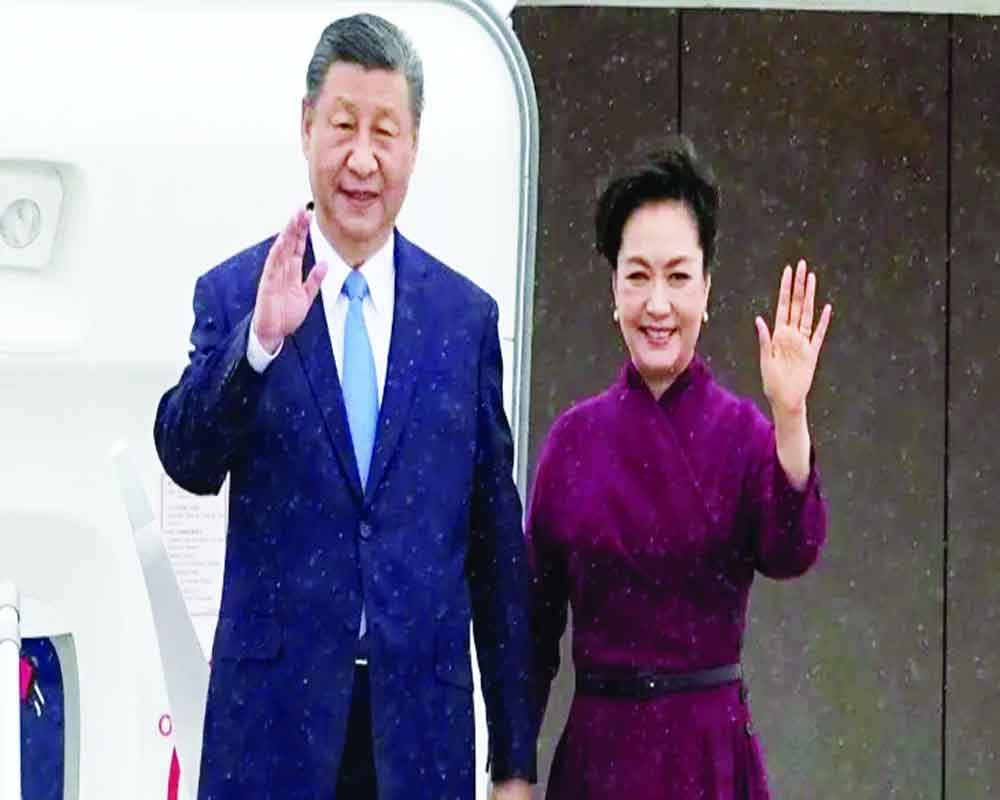Xi embarks on a strategic journey across Europe, a move laden with symbolism
Geo-political adjustments are getting done, bilaterally and plurilateral, even as the world’s largest democracies are busy calming their domestic constituencies, where a key rallying agenda is China. The two largest democracies, India and the US, both of whom have their own set of issues with China, are in the middle of some of the most competitive election processes, ever seen across the globe. Meanwhile, the EU, or at least many of its member countries, not to mention US allies such as Australia are carefully recalibrating the entangled web of engagement with China.
It is by no coincidence that Chinese Premier Xi Jinping, was on a strategic three-nation tour of Europe, earlier this week. This tri-nation tour, during which the Chinese premier, also met the European Union president Ursula Von der Leyen, comes after a gap of almost 5 years and is also a time when many European nations have been blaming China for pushing highly subsidised electric vehicles into their markets, making several European auto factories redundant. The Europeans also wanted to focus on China playing a larger role in stabilising its “friends without limits “ Russia, in the war against Ukraine, pushing up fuel-aided inflation across the region. The Europeans in the plain speak, they are known for, outlined clearly in the president’s press statement, “the first topic where we exchanged views on was the geopolitical situation. We especially discussed Ukraine and the conflicts in the Middle East. We agree that Europe and China have a shared interest in peace and security.
We count on China to use all its influence on Russia to end Russia’s war of aggression against Ukraine. President Xi has played an important role in de-escalating Russia’s irresponsible nuclear threats, and I am confident that President Xi will continue to do so against the backdrop of the ongoing nuclear threats by Russia. We have also discussed China’s commitment not to provide any lethal equipment to Russia. More effort is needed to curtail the delivery of dual-use goods to Russia that find their way to the battlefield. And given the existential nature of the threats stemming from this war for both Ukraine and Europe, this does affect the EU-China relations. “ The message from the EU to China was, don’t help Russia in its unjust war on European soil, or else the bilateral relation would be in trouble. No surprises, Ukraine and the Middle East didn’t feature, till the bottom three paragraphs of the press statement issued by the Chinese team, post the trilateral meeting.
Also no surprises with the language which read “On the Ukraine crisis, President Xi pointed out that China, France and the EU all wish to see an early ceasefire and return of peace in Europe, and support political settlement of the crisis. China has been working vigorously to facilitate talks for peace. China’s objective and just position and its constructive role have been widely recognized by the international community. China is ready to stay in communication with relevant parties.” The other significant element of these conversations was traded, as all parties involved are feeling the constraints of escalating fuel costs, the volatile geo-political environment and, the post-Covid, supply chain mismatch. The EU provided sharp pointers on Chinese subsidised products, free and fair access to each other’s markets and supply chain resiliency in their conversations. A defensive China maintained that the two sides have extensive common interests and broad space for cooperation in green and digital transition. It is necessary that they properly address economic and trade frictions through dialogue and consultation, and accommodate each other’s legitimate concerns.”. China has started making, the right moves to woo back some of its largest market partners, at a time when India and the US, the other key stakeholders in the Indo-Pacific theatre, are busy with their elections. India will get over elections in about a month, and an agile nimble China policy outlook awaits.
(The writer is a policy analyst; views are personal)


























